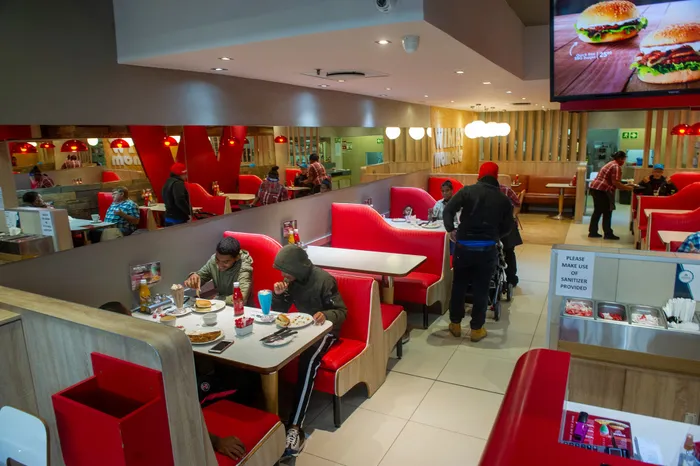Famous Brand shows financial resilience despite tough year marked by deteriorating infrastructure
FRANCHISES

Famous Brands, owns Wimpy, Steers and Debonairs among other brands
Image: File
Famous Brands, Africa’s largest restaurant franchisor, reported a resilient financial performance for the year ended 28 February 2025 in its annual report, despite challenging operating conditions marked by a deteriorating infrastructure environment, and cash-strapped consumers.
The group, which owns and franchises major South African food brands such as Steers, Wimpy, Debonairs Pizza, Mugg & Bean, and Fishaways, posted a 3.2% rise in revenue to R8.28 billion, up from R8.02 billion the previous year. Operating profit grew by 12.6% to R914 million, while headline earnings per share climbed to 520 cents, from 465 cents in 2024.
CEO Darren Hele credited the group’s performance to disciplined cost containment, brand resilience, and a robust business model. “Our financial results are thanks to strong cost control, the enduring appeal of our brands, and the resilience built into our business,” Hele said in the annual report.
However, Hele did not shy away from describing the difficulties the company faced. “South Africa is an increasingly tough market to operate in, with rising costs and failing infrastructure,” he noted. Citing power supply issues, he added that Eskom’s electricity tariffs increased by 12.7% in July 2024 and are expected to rise by another 11.3% in July 2025, with future hikes likely.
Hele pointed to logistics disruptions at South African ports and poor road conditions as additional threats to operations. “Delays at ports mean we must hold more stock or source from costlier suppliers to avoid shortages,” he said. “Infrastructure failures - including potholes and malfunctioning traffic lights - have a knock-on effect on consumer behaviour, leading to reduced late-night foot traffic and earlier dining patterns.”
Access to clean, reliable water also emerged as a growing concern. “Water supply has become increasingly unreliable. We are investing in filtration, recycling, and storage at our plants, particularly where water use is highest,” Hele said. As of year-end, 56% of the group’s South African restaurants had secured alternative water solutions.
Despite these obstacles, Famous Brands maintained its expansion momentum. Chairperson Chris Boulle praised the resilience of franchise partners who, he said, continued to open and refurbish outlets despite rising electricity, labour, and input costs.
Famous Brands has a healthy pipeline of new restaurant openings planned for 2026.
He noted the 2025 financial year was characterised by low consumer spending, especially in the first half.
To remain competitive, the group made strategic trade-offs, balancing support to franchisees and affordability for customers. This included carefully deciding which supply chain costs to absorb and which to pass on, all while maintaining viable margins across the system.
Famous Brands continues to invest in operational efficiency and scalability. A major milestone was the June 2025 opening of a new cold storage facility at the Midrand Campus, a project completed on time and within budget as part of a broader logistics optimisation plan.
The group is also focused on modernising its manufacturing plants over the next three years and enhancing its back-end technology to support cost-effective delivery and front-end customer service.
Famous Brands also sees the opportunities in consumer-facing technology including improving its e-commerce offering, simplifying its technology ecosystem to reduce costs and complexity and providing personalised engagement with consumers.
On the digital front, Famous Brands is simplifying its technology ecosystem and investing in consumer-facing tools such as e-commerce and personalised engagement.
“This year, we finalised the roadmap for leveraging data analytics and business intelligence,” Boulle said. “Our goal is to offer insight-led, differentiated value to both our franchise partners and customers.”
BUSINESS REPORT